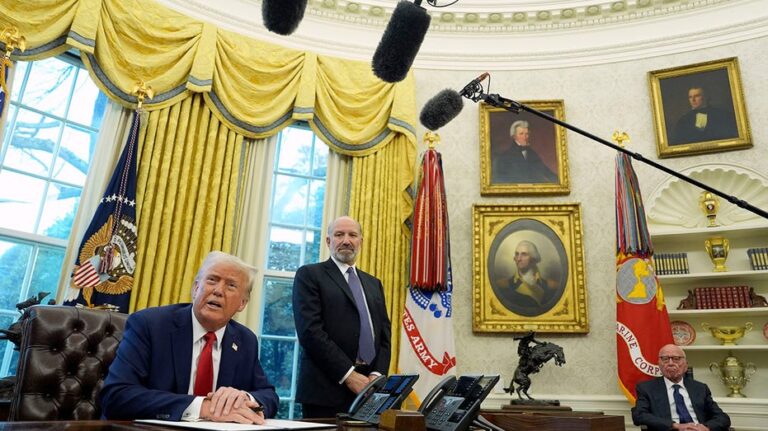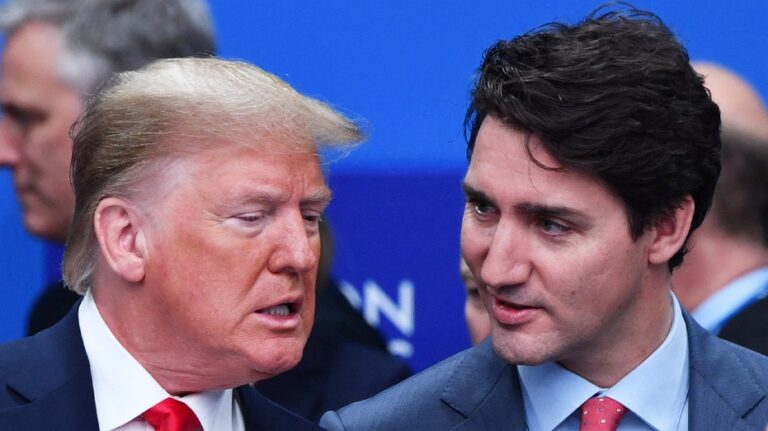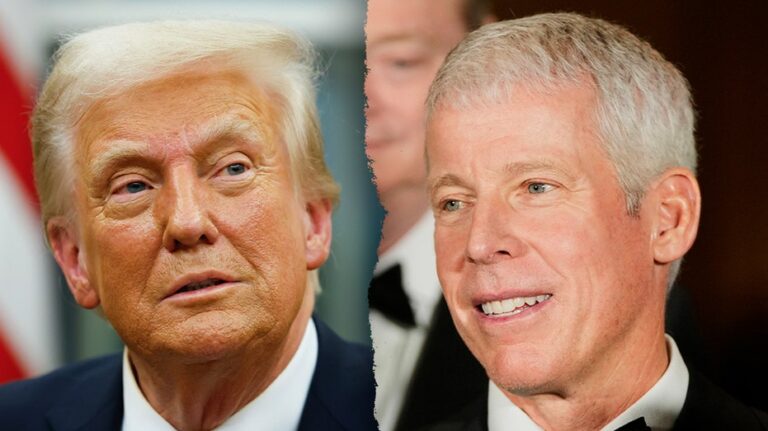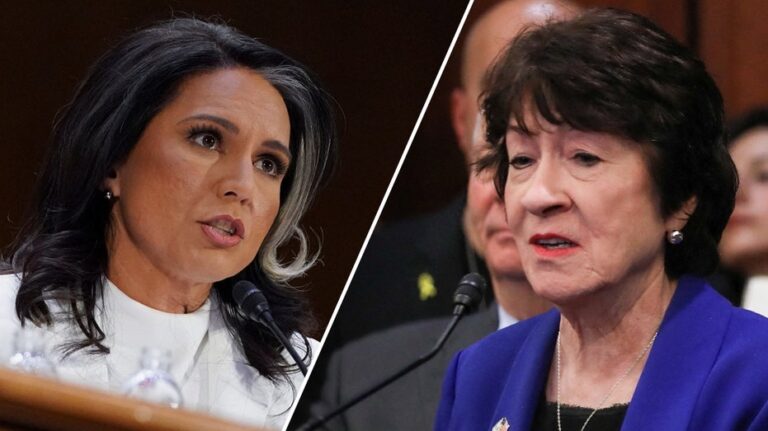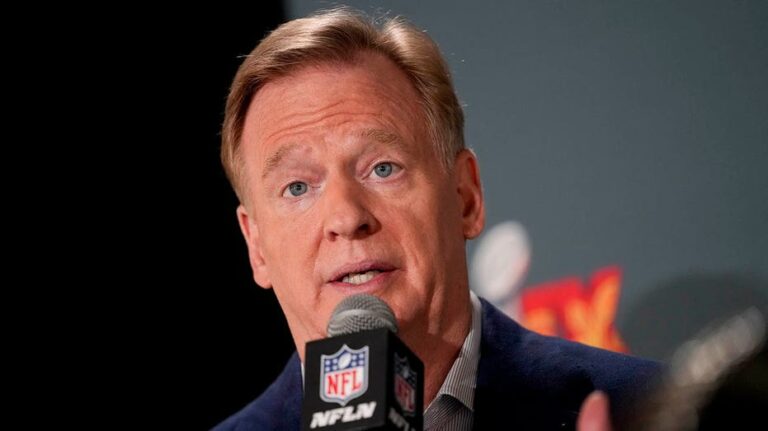
Amid scrutiny over Robert F. Kennedy Jr.’s pledge to transfer his financial interest in vaccine lawsuits to his family, legal experts have criticized the move but note that Kennedy’s approach is not significantly different from actions taken by other public officials in the past.
During Kennedy’s confirmation hearings last week, the potential next secretary of Health and Human Services was probed over his financial stake in personal-injury lawsuits tied to vaccines, in particular his ties to a suit against pharmaceutical company Merck and its Gardasil cervical cancer vaccine. While Kennedy would not initially commit to letting go of his stake against Merck, he reversed course in a written response to lawmakers’ questions following a hearing, noting he would amend his pledge and “will divest my interest in any such litigation via an assignment to my non-dependent, adult son.”
While some legal experts have argued the move does not go far enough to quash potential conflicts for Kennedy, others say this approach is akin to that taken by several other public officials who have found themselves in a similar situation. Meanwhile, one legal expert suggested to Fox News Digital that the pass from Kennedy to his son “is more than sufficient to meet any ethical concerns.”
“That may comply with ordinary conflict of interest issues,” Jim Copland, director of legal policy at the Manhattan Institute, said. “I just don’t think the head of the Department of Health and Human Services has any business being involved in any way with litigation against Merck.”
Fellow Manhattan Institute legal expert Ilya Shapiro said he is unsure whether Kennedy’s move will suffice in avoiding any real conflict, but added that he did recognize “it’s not unusual in light of past examples.”
Both Democrats and Republicans have used family to shield themselves from ethics complaints related to their personal business dealings, with former President Joe Biden being a recent and notable example after a multi-year probe into his family business dealings that found both his son and brother were engaged in risky business relationships with foreign entities, such as China. Biden has repeatedly denied his involvement in those business dealings.
Former Speaker of the House Nancy Pelosi similarly sought to defend her family’s business dealings after it was revealed her husband was making money investing in companies that had business in front of his wife. In response to questions from reporters about whether she agreed with efforts to ban federal lawmakers’ spouses from trading in stocks, Pelosi replied that “they should be able to participate in that.”
Other notable figures who have used their families to shield their personal business dealings include President Donald Trump, who handed over control of his Trump Organization business empire to his sons, and the late Sen. Dianne Feinstein, whose investor husband, Richard Blum, managed investments through his firm Blum Capital Partners that often intersected with his wife’s work while she was in Congress.
TRUMP-ALIGNED GROUP PUTTING PRESSURE ON REPUBLICAN SENATORS IN PUSH TO CONFIRM RFK JR.
“It is my opinion that RFK, Jr.’s plan to pass on any financial stake in possible vaccine injuries to his son is more than sufficient to meet any ethical concerns,” Hans von Spakovsky, a senior legal fellow at the Heritage Foundation, told Fox News Digital. “This is particularly true because of the limitations imposed by federal law on any claims made against vaccine manufacturers that severely limit possible compensation for anyone claiming a vaccine was somehow defective.”
Spakovsky posited that the federal government’s National Vaccine Injury Compensation Program, which prohibits civil litigation against drugmakers and instead directs the federal government to administer any vaccine-injury payments, serves to buffer the impact Kennedy could potentially have on vaccine-related injury payments.
“RFK would have no authority whatsoever [over this program],” he said. “The point is that all of this is so disconnected from RFK, Jr.’s potential Cabinet position if he is confirmed, that anyone who says this is a ‘serious’ ethics problem is wrong.”
Copland, who agreed with Spakovsky that the vaccine compensation program diminishes much of Kennedy’s advantage, said RFK Jr. could still benefit in an indirect manner.
“I think it’s a more concerning conflict of interest than just saying, ‘Oh, you own a lot of equity interest in some company that may incidentally benefit you know,’” Copland said. “I mean, if you had a Defense Department secretary who was a CEO of a major military contractor, and then he passes that off to his son, I think you’d still have a concern about that due to the obvious conflict of interest there, which is different than a sort of ordinary, ‘Oh, I own a company, and it’s going to, incidentally, benefit from the government.'”
RFK JR SPENT WEEKEND TALKING TO KEY SENATOR WHO COULD MAKE OR BREAK HIS CONFIRMATION
Fox News legal analyst Andy McCarthy was more critical of Kennedy’s decision to pass off his financial interests to his son, noting that the fact he is “struggling to come up with a scheme to retain his stake, rather than doing the obvious right thing by abandoning it, underscores that this is a real conflict of interest.”
“The comparison to family asset transfers in other contexts is inapposite and, in any event, misses the point,” McCarthy said. “Whatever one thinks of President Trump’s arrangements regarding his family business, voters knew about that business and elected him anyway – and the president is not in a position to recuse himself from executive decision-making based on conflicts of interest. By contrast, Kennedy wasn’t elected by anyone.”
McCarthy added that after years “of justifiably complaining that President Biden was corruptly enriched by payments… made to his son and brother,” he finds it hard to believe “that Republicans can turn a blind eye to a financial stake, which would create a significant conflict of interest for RFK Jr. as HHS secretary, on the pretext that he plans to transfer the stake to his son.”
Amid scrutiny over Robert F. Kennedy Jr.’s pledge to transfer his financial interest in vaccine lawsuits to his family, legal experts have criticized the move but note that Kennedy’s approach is not significantly different from actions taken by other public officials in the past.
During Kennedy’s confirmation hearings last week, the potential next secretary of Health and Human Services was probed over his financial stake in personal-injury lawsuits tied to vaccines, in particular his ties to a suit against pharmaceutical company Merck and its Gardasil cervical cancer vaccine. While Kennedy would not initially commit to letting go of his stake against Merck, he reversed course in a written response to lawmakers’ questions following a hearing, noting he would amend his pledge and “will divest my interest in any such litigation via an assignment to my non-dependent, adult son.”
While some legal experts have argued the move does not go far enough to quash potential conflicts for Kennedy, others say this approach is akin to that taken by several other public officials who have found themselves in a similar situation. Meanwhile, one legal expert suggested to Fox News Digital that the pass from Kennedy to his son “is more than sufficient to meet any ethical concerns.”
“That may comply with ordinary conflict of interest issues,” Jim Copland, director of legal policy at the Manhattan Institute, said. “I just don’t think the head of the Department of Health and Human Services has any business being involved in any way with litigation against Merck.”
Fellow Manhattan Institute legal expert Ilya Shapiro said he is unsure whether Kennedy’s move will suffice in avoiding any real conflict, but added that he did recognize “it’s not unusual in light of past examples.”
Both Democrats and Republicans have used family to shield themselves from ethics complaints related to their personal business dealings, with former President Joe Biden being a recent and notable example after a multi-year probe into his family business dealings that found both his son and brother were engaged in risky business relationships with foreign entities, such as China. Biden has repeatedly denied his involvement in those business dealings.
Former Speaker of the House Nancy Pelosi similarly sought to defend her family’s business dealings after it was revealed her husband was making money investing in companies that had business in front of his wife. In response to questions from reporters about whether she agreed with efforts to ban federal lawmakers’ spouses from trading in stocks, Pelosi replied that “they should be able to participate in that.”
Other notable figures who have used their families to shield their personal business dealings include President Donald Trump, who handed over control of his Trump Organization business empire to his sons, and the late Sen. Dianne Feinstein, whose investor husband, Richard Blum, managed investments through his firm Blum Capital Partners that often intersected with his wife’s work while she was in Congress.
TRUMP-ALIGNED GROUP PUTTING PRESSURE ON REPUBLICAN SENATORS IN PUSH TO CONFIRM RFK JR.
“It is my opinion that RFK, Jr.’s plan to pass on any financial stake in possible vaccine injuries to his son is more than sufficient to meet any ethical concerns,” Hans von Spakovsky, a senior legal fellow at the Heritage Foundation, told Fox News Digital. “This is particularly true because of the limitations imposed by federal law on any claims made against vaccine manufacturers that severely limit possible compensation for anyone claiming a vaccine was somehow defective.”
Spakovsky posited that the federal government’s National Vaccine Injury Compensation Program, which prohibits civil litigation against drugmakers and instead directs the federal government to administer any vaccine-injury payments, serves to buffer the impact Kennedy could potentially have on vaccine-related injury payments.
“RFK would have no authority whatsoever [over this program],” he said. “The point is that all of this is so disconnected from RFK, Jr.’s potential Cabinet position if he is confirmed, that anyone who says this is a ‘serious’ ethics problem is wrong.”
Copland, who agreed with Spakovsky that the vaccine compensation program diminishes much of Kennedy’s advantage, said RFK Jr. could still benefit in an indirect manner.
“I think it’s a more concerning conflict of interest than just saying, ‘Oh, you own a lot of equity interest in some company that may incidentally benefit you know,’” Copland said. “I mean, if you had a Defense Department secretary who was a CEO of a major military contractor, and then he passes that off to his son, I think you’d still have a concern about that due to the obvious conflict of interest there, which is different than a sort of ordinary, ‘Oh, I own a company, and it’s going to, incidentally, benefit from the government.'”
RFK JR SPENT WEEKEND TALKING TO KEY SENATOR WHO COULD MAKE OR BREAK HIS CONFIRMATION
Fox News legal analyst Andy McCarthy was more critical of Kennedy’s decision to pass off his financial interests to his son, noting that the fact he is “struggling to come up with a scheme to retain his stake, rather than doing the obvious right thing by abandoning it, underscores that this is a real conflict of interest.”
“The comparison to family asset transfers in other contexts is inapposite and, in any event, misses the point,” McCarthy said. “Whatever one thinks of President Trump’s arrangements regarding his family business, voters knew about that business and elected him anyway – and the president is not in a position to recuse himself from executive decision-making based on conflicts of interest. By contrast, Kennedy wasn’t elected by anyone.”
McCarthy added that after years “of justifiably complaining that President Biden was corruptly enriched by payments… made to his son and brother,” he finds it hard to believe “that Republicans can turn a blind eye to a financial stake, which would create a significant conflict of interest for RFK Jr. as HHS secretary, on the pretext that he plans to transfer the stake to his son.”
